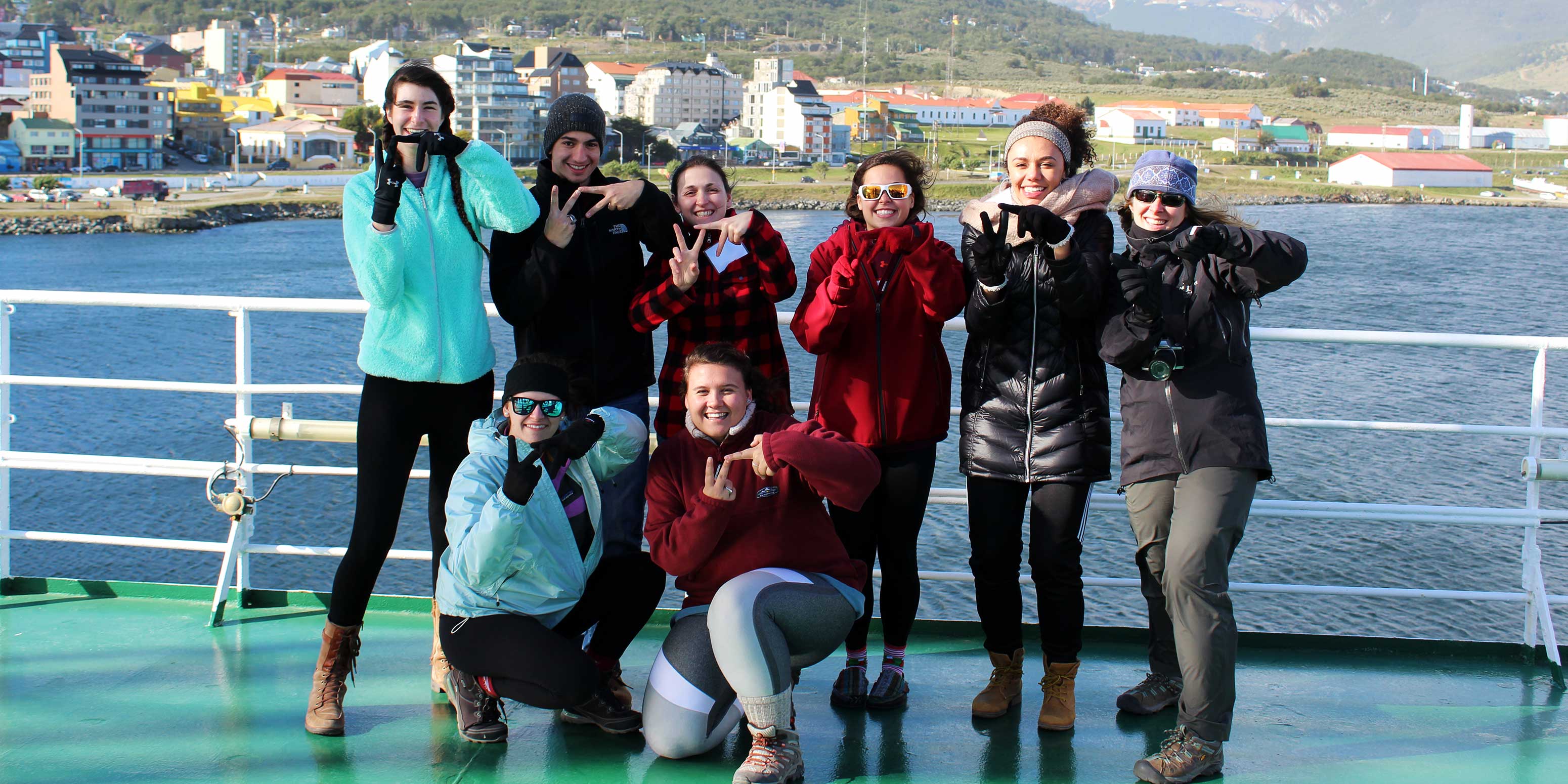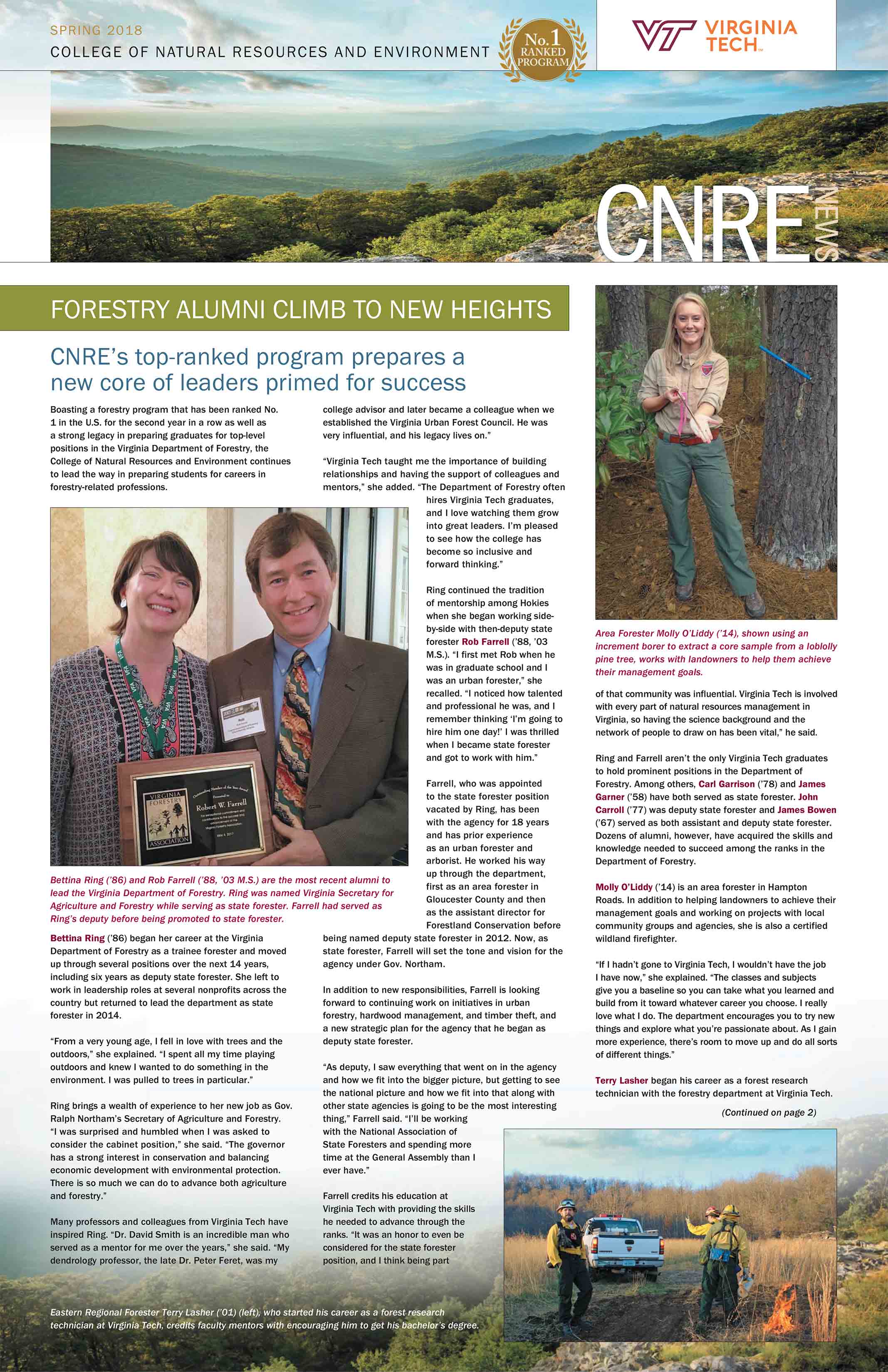Icebergs ahead! Students study ice, sea birds, and ecotourism in Antarctica
February 15, 2018

Many people like to travel south to escape winter, but seven students in Associate Professor Lynn Resler’s Humans and the Environment course took that desire to the extreme. The course, which developed out of a partnership between Virginia Tech’s geography department, The Ohio State University, and The College at Brockport–SUNY, took faculty and students from all three schools on a two-week trek to Antarctica in December to learn about the region’s physical and ecological systems, sustainable tourism, and the use of south polar resources.
“Antarctica is such a unique place, and it remains so untouched compared to the rest of the world,” said sophomore Maya Johnson. “I’m lucky to have traveled a lot, but sitting in the snow in Antarctica surrounded by penguins and wildlife that other people only imagine seeing was such an incredible experience.”
In the fall, the students participated in a lecture-based course delivered online through live video lectures, which allowed students from the three schools to interact before their trip. They also chose a research project based on the lecture topics to work on while onboard the ship to Antarctica. “I was amazed at how students from all three schools bonded flawlessly,” said senior John Balyozian. “Regardless of who you were or which school you attended, conversation was greeted with a smile and hello.”
The participants began their excursion in Buenos Aires and traveled to Ushuaia, Argentina, where they learned about the town’s expansion due to ecotourism and the impact the industry has had on its infrastructure, before boarding a ship bound for Antarctica.
“Our tour company, One Ocean Expeditions, was excellent in terms of their knowledge of the landscape and safety protocols,” Resler said. “They had naturalists on their guide staff, so we worked with an ornithologist, wildlife biologists, experts in mountaineering, and professional photographers in the crew.”
During the two-day voyage to Antarctica, the students broke into groups for their research projects. “This experience definitely opened my eyes to the dedication and requirements needed to complete accurate research,” Johnson said.
Upon arrival, the group took inflatable zodiacs from the ship to the Antarctica Peninsula, where they spent most days hiking, visiting penguin colonies, and touring scientific research stations. They also heard lectures on the region’s wildlife, history, and geology.
Senior Trish Liller was particularly amazed by the wildlife she saw. “On the first day in Antarctica, we were sailing back from seeing penguins and I saw a whale breach the surface. When it surfaced again, it was right next to our zodiac. It was extremely gentle, and seemed so smart and curious about us. Seeing the different personalities in these animals really made me appreciate everything the world has to offer.”
On Christmas Day, the group visited Deception Island, a volcanic caldera with ocean water filling its center. While no lava is present, shifting tectonic plates under the surface help classify it as an active volcano and warm the ocean water inside the island. “I can say I jumped into one of the remaining active volcanoes on the planet,” Liller declared.
While the group slept on the ship and took the zodiacs to shore each day, the students had an opportunity to spend one night on the ice. “I was nervous about the idea of sleeping on Antarctica for the night, because we weren’t allowed to go back to the ship unless absolutely necessary,” Johnson recalled. “I didn’t love the idea of being stuck out there for six hours, but it ended up being one of the coolest things to wake up on Antarctica in a sleeping bag, covered in fresh snow.”
Balyozian added, “It’s incredible that our school has a program to send their students to the end of the world to conduct research on everything from tourism and global warming to bird migration patterns.”
Resler hopes to offer more study abroad opportunities in the future. “Mentoring students in such a transformative experience is very rewarding for me,” she said. “The opportunity to experience a different worldview is invaluable as we become an increasingly globalized society. It fosters an appreciation of other people, cultures, and places. Not only that, it helps people to develop self-confidence and often develop long-term friendships and a broader sense of community.”



